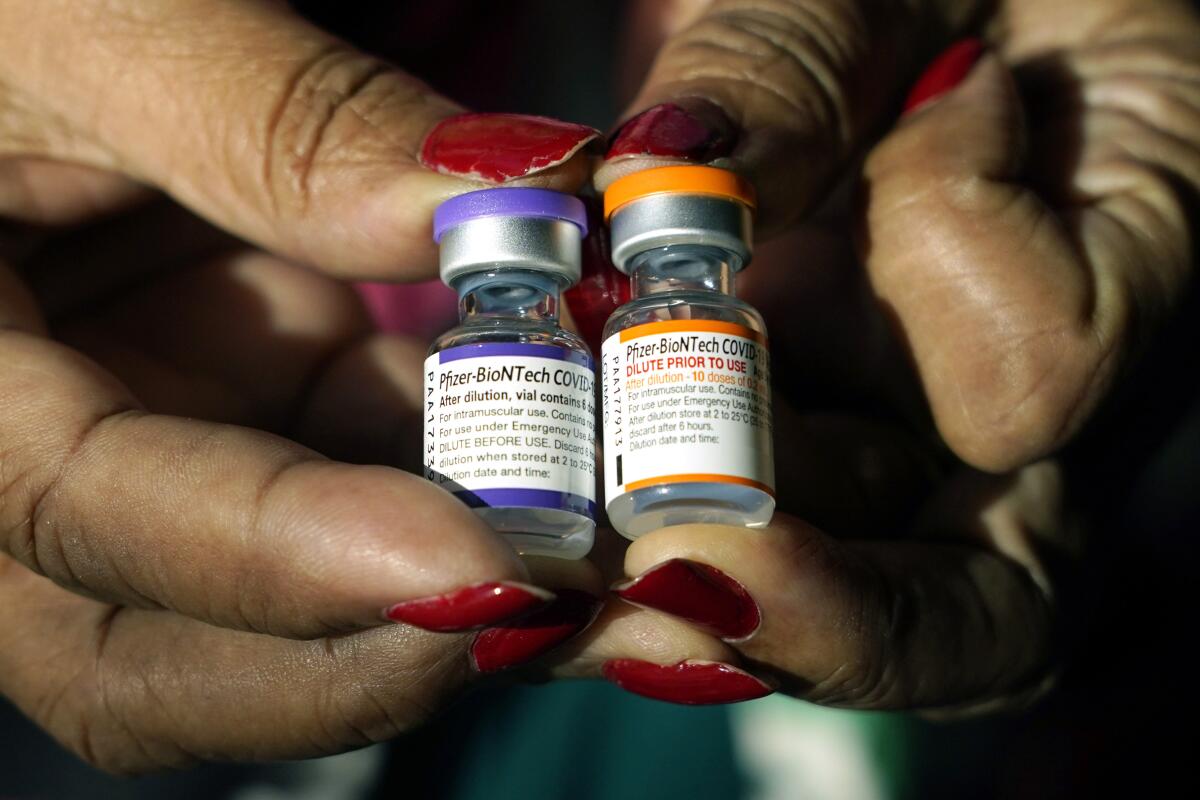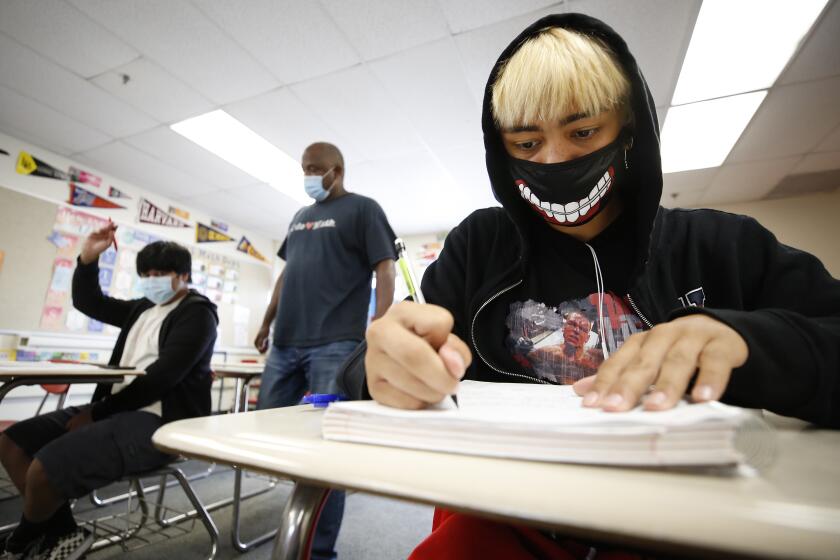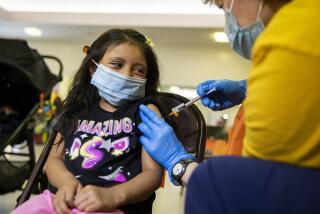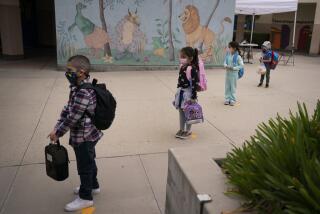Pfizer shots protect kids from severe COVID-19, even in Omicron surge

Pfizer’s COVID-19 vaccine gave children 5 and older strong protection against hospitalization and death even during the Omicron surge, which hit youngsters especially hard, U.S. health officials reported Tuesday.
New data from the Centers for Disease Control and Prevention came a day after a study of New York children suggested the vaccine may not be as effective in 5- to 11-year-olds as in older kids, especially at blocking milder infections. That data raised the question of whether kid-sized doses given to those under 12 might be too low.
But the CDC said data from multiple other states suggest the issue isn’t children’s ages or dose size — it’s Omicron.
Vaccination generally is less effective against the hugely contagious Omicron variant than against earlier versions of the coronavirus — and vaccinations for 5- to 11-year-olds began just weeks before Omicron began circulating.
“As a parent of a very young child, I think I would do everything to keep them out of the emergency department in the middle of the night,” said CDC epidemiologist Ruth Link-Gelles. “What we see from the data that we have is that the vaccine continues to provide good protection against more severe outcomes.”
Pediatricians say the back-and-forth results may seem confusing, but parents need to understand that the shots are still the best way to prevent serious illness.
“If you’re vaccinated, you may get a mild infection, and we’re just going to have to learn to live with that,” said Dr. Paul Offit of the Children’s Hospital of Philadelphia.
He said the New York study was too small to draw conclusions from and also couldn’t account for variables such as the fact that some infections weren’t counted because kids were tested at home instead of a clinic. He said youngsters admitted to his hospital with severe COVID-19 are the unvaccinated, “and it’s hard to watch.”
California’s strict indoor mask rules at schools have helped prevent major coronavirus outbreaks on campuses.
The CDC reported Tuesday that between April and early January there were nine deaths related to COVID-19 among vaccinated children ages 5 to 17 — compared with 121 deaths among unvaccinated children that age.
Also, the CDC examined pediatric hospitalizations in 10 states from April to the end of January. The vaccine proved 74% effective at preventing hospitalization in 5- to 11-year-olds. Only two vaccinated children were hospitalized during the study period, compared with 59 unvaccinated children.
In comparison, the vaccine was 92% to 94% effective against hospitalization in 12- to 15-year-olds and 16- to 17-year-olds. Most of the adolescent hospitalizations occurred when the Delta variant was dominant, and most of the hospitalizations of those younger than 12 occurred during the Omicron wave, which began in early December.
Tuesday’s study also found that during the time when Omicron was predominant, the vaccine was 51% effective in preventing emergency room or urgent-care visits among 5- to 11-year-olds. That was fairly similar to the 45% effectiveness for 12- to 15-year-olds who’d gotten their second dose months earlier.
What about less serious outcomes?
A report released Monday from researchers with New York’s state health department analyzed health records week by week from early December through the end of January. Vaccine effectiveness against any coronavirus infection dropped from 68% to just 12% by the height of the Omicron wave. Among kids 12 and older, that effectiveness dropped to 51%.
Remarkably, the data suggested 12-year-olds appeared to have the most protection of any age — prompting the researchers to ask if the dose should be reexamined.
The coronavirus variant known as BA.2, or the ‘stealth Omicron,’ now causes more than a third of new Omicron infections around the world.
The Pfizer-BioNTech vaccine is the only one available to U.S. children, and those ages 5 to 11 receive one-third of the dose given to everyone 12 and older. Also, people 12 and older are urged to get a booster dose to rev up protection against Omicron.
The CDC’s latest study didn’t track infections the same way, but Link-Gelles said surveillance data from 29 other states doesn’t suggest a difference between the younger and older kids.
Unvaccinated 5- to 11-year-olds were 1.3 times more likely to get COVID-19 in January — at the height of the Omicron surge — than vaccinated youngsters, according to new CDC data. For 12- to 17-year-olds, the unvaccinated were 1.5 times more likely to get COVID-19 than their vaccinated peers that month.
It’s disappointing that the vaccines didn’t do more to prevent infections, and it may take more research to tell if younger children might fare better with a different dose, said Dr. Richard Besser, a pediatrician and president and chief executive of the Robert Wood Johnson Foundation, who wasn’t involved with the new studies.
Pfizer currently is testing a booster dose for 5- to 11-year-olds.
But meanwhile, Besser said, “we do know that these vaccines are safe, we do know they reduce the risk of hospitalization.”








